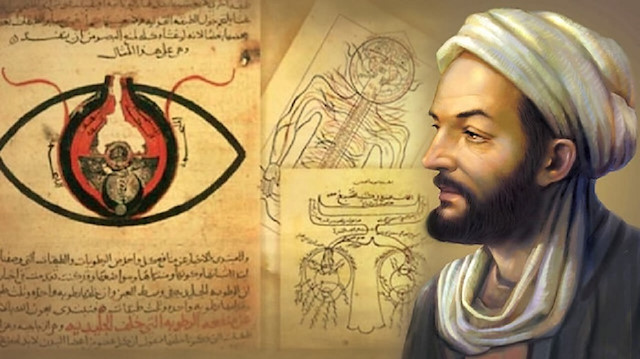
File photo: Ibn Sina, a key figure of Islamic philosophy and science
Ibn Sina, a key figure of Islamic philosophy and science, is being commemorated Friday on the 982nd anniversary of his passing.
Born in 980 in Afshana, a village in Uzbekistan, when the Persian Samanid dynasty ruled the region, Ibn Sina is often known in the West as Avicenna.
“Ibn Sina is a part of our thinking mind. If we neglect him, we neglect ourselves,” Ömer Türker, an Islamic philosophy professor at Istanbul’s Marmara University, told Anadolu Agency.
“Ibn Sina was the key figure of Islamic philosophy and scientific tradition during the era when Islam was scientifically dominant in the world,” Turker said.
“The theories and views of Ibn Sina are central to Islamic philosophy,” he added.
“Philosophy today is thought to be devoted to the fields of logic and metaphysics, but from the classical period to the Renaissance, philosophy was used as a name that encompasses all of mental production, including physics, mathematics, ethics, politics, and metaphysics,” he said.
Contributions
According to Turker, there are a few fields that make Ibn Sina unique in the history of thought.
First of all, he was the premier figure in the classical world in the fields of metaphysics and medicine.
Also, he was a seminal thinker in the fields of logic, theoretical physics, mathematics, and musical theory.
Turker said that he also made important contributions to the fields of ethics, practical philosophy, psychology, astronomy, and medicine.
Key figure in history of humanity
Turker stressed that Ibn Sina gave final form to the great tradition of philosophy and science that emerged from the Hellenistic period, after the death of Alexander the Great, a millennium before he was born.
“The final answer to the question of what is scientific knowledge was given by Ibn Sina,” he explained.
“Ibn Sina is an important figure not only for philosophical processes in Islamic civilization but also for the history of humanity and the history of thought,” Turker underlined.
Turker stressed that in his time, doing scientific study independent of the theories put forth by Ibn Sina was impossible.
“Ibn Sina is one of the important thinkers that Islam brought to the history of humanity.”
Works
Turker stressed the importance of Ibn Sina’s works, such as Kitab al-Shifa (The Book of Healing), Ibn Sina's major work on philosophy, Al-isharat wa al-tanbihat (Remarks and Admonitions), and Kitab al-Najat (The Book of Salvation).
Kitab al-Shifa, which covered logic, physics, mathematics, and metaphysics, guided all subsequent studies of philosophy and science, according to Turker.
Al-isharat wa al-tanbihat formed the basic form of the study of philosophy in the Islamic world, said Turker.
After Ibn Sina’s death, his works shaped the philosophy of the Islamic world and made their way to the West in short order, usually in Latin translations.
The Western world studied classical thought and science through the works of Ibn Sina until the 18th century.
- Representative of scientific, philosophical knowledge
Ibn Sina’s most important quality is that he represents the scientific and philosophical knowledge of the classical world, argued Turker.
The history of philosophy should be divided into before and after Ibn Sina, according to Turker.
“Western writers downplayed Ibn Sina’s importance to strengthen the emphasis on ancient Greek in rewriting and reshaping the history of philosophy.”
Underlining Ibn Sina’s importance for modern science and philosophy, Turker said: “The developmental processes of the history of thought cannot be analyzed without considering Ibn Sina.”
Muslim philosophical thought systems
Turker asserted that Ibn Sina's theories provide important opportunities for Muslims to produce their own philosophical thought systems.
He also stressed how Ibn Sina could help address the common problems faced by all humanity.
"Ibn Sina's views provide an important basis for us to produce original thoughts about any problem we face in the modern era," he said.
#Ibn Sina
#Omer Turker
5 yıl önce














